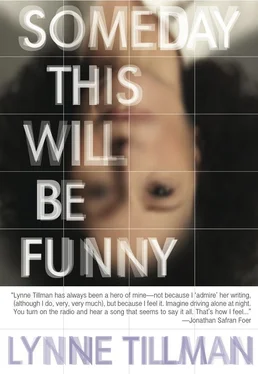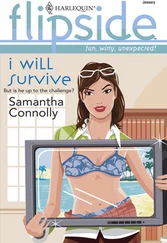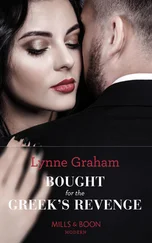Collaborating puts you through a lot of intense shit. They both know that. Marvin was once married to Berry Gordy’s sister. He thinks Yoko and she could be twins. “That was heavy, my boss’s sister is my wife for seventeen years, it’s like you with Paul, it didn’t go down great around Motown,” Marvin says.
“Imagine” was soulful, Marvin tells him, not funky but soulful. John shoots him a familiar half-smile, half-frown, and Marvin sits beside him at the piano. John slides over. Marvin looks at the keys and begins noodling “Imagine,” but his left hand belongs to Ray Charles. John returns to his mother Julia, the familiar refrain. “Yoko is actually more like my mum, don’t laugh, she’s no nonsense, like Julia. Yoko took me back after I’d been a foolish lad. I really hurt her. Julia would’ve always been there if she could.”
Marvin shakes his head affirmatively and sings, “Imagine there’s no heaven, it’s easy if you try, imagine all the people living for today, imagine there’s no country, it isn’t hard to do, nothing to kill or die for, and no religion too, imagine all the people living life in peace…”
John could never have written it without Yoko. He cocks his head and, like a chorus of one, talk-sings: “Father, father, we don’t need to escalate, war is not the answer… You know, we’ve got to find a way to bring some loving here today… Don’t punish me with brutality, talk to me, so you can see, what’s going on.” They’re trading lines, then blending them contrapuntally.
What’s going on. Marvin can’t go home, shouldn’t, he’s escaping to London, but his mother needs him here, his children, too, and he can’t make it, he has to save himself from the madness, his madness. He doesn’t know what else to do. He’s weirdly determined to give something to John, their bond is new, maybe peculiar, ain’t that peculiar, but he wants to leave him with promise, a song they can do. It’ll be about hope and home, motherless and fatherless children. It’s more for him than for John, probably. John stands, singing the line “Don’t punish me with brutality” over and over. “Imagine” and “What’s Going On” are talking to each other. Marvin pumps the pedals, his left hand striding, his right bridging more than songs now, and he looks up at John. That intent face has crumpled, sort of, but he’s content, maybe. Marvin intones, “Nothing to kill or die for,” while John chants, “Don’t punish me, don’t punish me.” That’s it, Marvin thinks. It’s a beginning.
More weed and lines of coke. Marvin tells John they’ll go to the studio, get a version of it down, they’ve got their idea, a duet of two minds, voices, old songs into new. Dynamite. It can work, and they’re both wired. Marvin hears himself saying again, “I’m fucked up now. We’ll get it down, when I’m back in the States.” Imagine. The sun is coming up over Central Park. Marvin pulls on his coat. “It’s a promise, man.”
“I’ll be here,” John says. “Later.”
O, know, sweet love, I always write of you, / And you and love are still my argument; / So all my best is dressing old words new, / Spending again what is already spent; / For as the sun is daily new and old, / So is my love still telling what is told.
— William Shakespeare, Sonnet 76
Evelina lowered her lids while he read. It was a very beautiful evening, and Ann Eliza thought afterward how different life might have been with a companion who read poetry like Mr. Ramy.
— Edith Wharton, Bunner Sisters
It’s strange… it’s strange! / His words are carved in my heart. / Would real love be a misfortune for me?
— Verdi, La Traviata
I wrote and told you everything, Felice, that came into my mind at the time of writing. It is not everything, yet with some perception one can sense almost everything… I don’t doubt that you believe me, for if I did you would not be the one I love, and nothing would be free of doubt.
— Franz Kafka, to Felice Bauer, July 13, 1913.
Everything Paige thought about love, anything she felt about love, was inadequate and wrong. It didn’t matter to her that in some way, from some point of view, someone couldn’t actually be wrong about an inchoate thing like love. “An inchoate thing like love” is feeble language. If my language is feeble, Paige thought, isn’t my love?
Love, are you feeble?
It was spring, and in the spring a young man’s, a young woman’s, heart turned heedlessly, helplessly, heartlessly, to love. Were those hearts skipping beats? Were eager suitors walking along broad avenues hoping beyond hope that at the next turn the love they had waited for all their lives would notice them and halt midstep or midsentence, dumbstruck, love struck? Were women and men, women and women, men and men, late at night, sitting in dark bars, surrounded by smoky glass mirrors, pledging their minds and bodies?
In her mind’s eye, Paige could see the lovers in a bar, where plaintive Chet Baker was singing, “They’re writing songs of love, but not for me,” and Etta James wailing, “You smiled and then the spell was cast… For you are mine at last.” And what did the lovers sing to each other? Did they, would they, utter the words I love you? On the computer screen, “I love you” winked impishly at Paige.
I love you.
Paige wondered whether words of love, love talk, would survive, whether that courtly diction would rest easy on the computer screen, where words appeared easily, complacent and indifferent, and disappeared more casually, deleted or scrolled into nothing or into the memory of a machine, and so wouldn’t the form dictate the terms, ultimately? Wouldn’t love simply vanish?
Even so, I love you.
Once upon a time the impassioned word was scratched into dirt, smeared and slapped onto rough walls, carved into trees, chiseled into stone, impressed onto paper, then printed into books. On paper, in books, the words waited patiently and were handy, always visible, evidence of love. In that vague, formative past, love was written with a flourish, and it flourished.
Is the computer screen an illuminated manuscript, evanescent, impermanent, but with a memory that is no longer mine or yours? Is love a memory that is never mine, never yours?
Remember I love you.
Paige thought, I give my memory to this machine. I want ecstasy, not evidence. Can a machine’s remembering prove anything about love? If she points to its glowing face, could Paige attest, as one might of a poem written on the finest ivory linen paper: Here, this is evidence of my love.
“For you are so entirely fair, / To love a part, injustice were/… But I love all, and every part, and nothing less can ease my heart.” (Sir Charles Sedley)
Paige glanced at the little marks, letters in regular patterns making words and paragraphs, covering sheets of paper that were spread haphazardly around her on the desk and on the floor, and she gazed at the computer’s face, as comforting and imperturbable as a TV screen.
Love, my enemy, even now I love you.
Romantic love arrived with the singer, the minstrel, who traveled from court to court, from castle to castle, relaying messages of love, concocting notions of love, torrents of poetic emotion, and in the courts men and women listened to these plaints and added more, their own. The singer heard new woes and put them into song, fostering a way to woo, but why did the minstrel sing in the first place, and what did traveling from one place to another do to produce songs of love? And later, did the printing press change love? Did the novel, offspring of Gutenberg’s invention, transform love? Did love become an extended narrative with greater expectations, not a song but an opera?
Читать дальше












